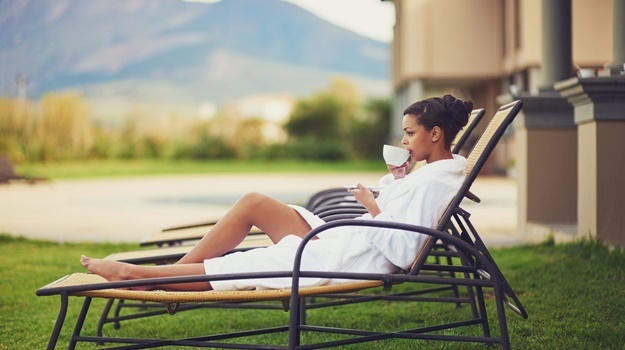


In nominal terms, total income from the tourist accommodation industry plummeted by 95.3% in June.
- Apart from some business and essential travel, South Africa’s tourism accommodation sector has been largely shut down since the end of March due to the nationwide lockdown.
- According to StatsSA, income plunged by over 95% in April, May and June this year.
- As a result, many businesses have had to close permanently or downscale their workforce.
The devastating impact of the lockdown on South Africa’s tourism accommodation industry is reflected in the latest statistics released by Statistics SA on Monday, with income plunging by over 95%.
According to Stats SA, total tourism accommodation income for April, May and June 2019 was R5.5 billion. This year, over the same three months, income fell to just R172.6 million. Tourism accommodation income includes related restaurant and bar sales.
In nominal terms (not taking inflation into account) total income from the tourist accommodation plummeted by 95.3% year-on-year in June, following unprecedented declines of 98.6% y/y and 97.9% y/y in April and May respectively, Investec economist Lara Hodes points out.
“Apart from business and other essential travel, this critical sector of the economy has been largely shut down since the end of March, when government enforced its nationwide lockdown.”
Overnight stays for leisure purposes – in an approved lodge or hotel – within one’s province only were permitted from the end of July. This has subsequently been broadened under level 2 lockdown which commenced this week, to include inter-provincial visits.
“While we should see returns from this sector start edging up, aided further by the lifting of the alcohol ban, many businesses have unfortunately had to close permanently or downscale their workforce,” says Hodes.
“Furthermore, international travel remains prohibited as global infection rates remain elevated. Inbound overseas leisure travel is vital to the profitability of many players in the domestic tourism industry.”
Economic fallout
The economic fallout from the pandemic has served to intensify the strain many consumers were already under prior to the crisis. As such, Hodes foresees many households will have to reduce or eliminate their leisure travel budgets.
“Additionally, behavioural shifts are envisioned with many individuals likely to remain hesitant to resume certain ordinary activities even once the economy is fully opened.”
According to a survey by, among others, the Department of Tourism and the Tourism Business Council of SA (TBCSA), the most significant concern for businesses considering reopening is sufficient demand to break-even.
“A protracted recovery of this essential sector – earmarked by government as a key growth area for the country and a vital conduit for job creation – is envisioned, along with the rest of the South African economy,” says Hodes.
Working together
Minister of Tourism Mmamoloko Kubayi-Ngubane recently said during a briefing that over the past three months government and shareholders have been working hard to find ways to operate in the midst of the pandemic. A draft tourism rescue plan is currently open to public input before it will be submitted to Cabinet.
Kubayi-Ngubane believes that tourism will be one of the fastest growing sectors in the recovery period and one of the key sectors that will drive the overall economic recovery.
For Sisa Ntshona, CEO of SA Tourism, price will be one of the issues of importance in the recovery period. He believes there is a lot of pent up demand.
Tshifhiwa Tshivhengwa, CEO of the TBCSA, which represents the private sector, said during the briefing that the industry would continue to improve and reopen in a responsible way, ensuring that Covid-19 protocols are followed.

